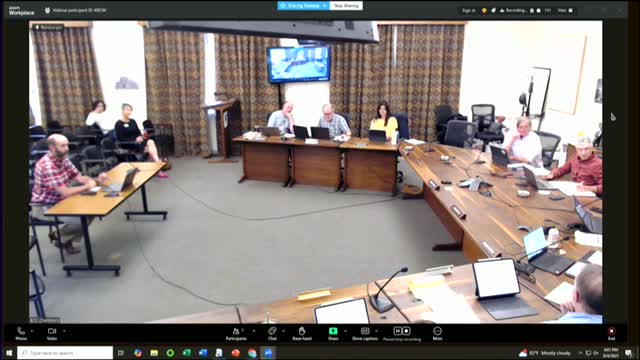Commissioners Discuss Special Election and Lodging Tax Timing for 2026 Ballot
August 04, 2025 | Jackson, Teton County, Wyoming
This article was created by AI summarizing key points discussed. AI makes mistakes, so for full details and context, please refer to the video of the full meeting. Please report any errors so we can fix them. Report an error »

In a recent joint information meeting held in Jackson, Wyoming, town and county officials engaged in a thoughtful discussion about the potential for a special election regarding a lodging tax. The meeting, marked by a sense of urgency and community focus, highlighted the financial implications and strategic considerations surrounding the proposed tax.
Commissioner Kamen raised a critical point about the budgetary impact of holding a special election, estimating costs between $100,000 and $175,000. This figure sparked a broader conversation about the necessity of aligning the town and county's priorities before moving forward with any ballot measures. Kamen emphasized the importance of the Sustainable Destination Management Plan (SDMP), which aims to ensure that tourism revenue is used to benefit both visitors and residents alike. He expressed a desire for a clear strategy that prioritizes local needs over attracting new tourists.
The timeline for the election was also a focal point of the discussion. Officials noted that while a decision on the lodging tax could be postponed, the final deadline for scheduling the election is July 16, 2026, if they aim to coincide with the general election on November 3, 2026. This timeline allows for further deliberation and community input, ensuring that any proposed measures reflect the values and needs of Jackson's residents.
As the conversation unfolded, questions arose about the mechanics of the lodging tax and its potential permanence. Current Wyoming statutes dictate that if a lodging tax is approved, it must be voted on again at the second general election following its initial approval, and subsequently every four years. This stipulation raised concerns about the long-term implications of any new tax measures.
Mayor Jorgensen expressed support for the lodging tax initiative, indicating a willingness to explore its benefits for the community. The meeting concluded with an invitation for public comment, underscoring the council's commitment to transparency and community engagement in the decision-making process.
As Jackson navigates these discussions, the outcome of the proposed lodging tax could significantly shape the town's approach to tourism and community welfare, reflecting a balance between economic growth and local quality of life. The coming months will be crucial as officials weigh their options and seek to align their strategies with the needs of their constituents.
Commissioner Kamen raised a critical point about the budgetary impact of holding a special election, estimating costs between $100,000 and $175,000. This figure sparked a broader conversation about the necessity of aligning the town and county's priorities before moving forward with any ballot measures. Kamen emphasized the importance of the Sustainable Destination Management Plan (SDMP), which aims to ensure that tourism revenue is used to benefit both visitors and residents alike. He expressed a desire for a clear strategy that prioritizes local needs over attracting new tourists.
The timeline for the election was also a focal point of the discussion. Officials noted that while a decision on the lodging tax could be postponed, the final deadline for scheduling the election is July 16, 2026, if they aim to coincide with the general election on November 3, 2026. This timeline allows for further deliberation and community input, ensuring that any proposed measures reflect the values and needs of Jackson's residents.
As the conversation unfolded, questions arose about the mechanics of the lodging tax and its potential permanence. Current Wyoming statutes dictate that if a lodging tax is approved, it must be voted on again at the second general election following its initial approval, and subsequently every four years. This stipulation raised concerns about the long-term implications of any new tax measures.
Mayor Jorgensen expressed support for the lodging tax initiative, indicating a willingness to explore its benefits for the community. The meeting concluded with an invitation for public comment, underscoring the council's commitment to transparency and community engagement in the decision-making process.
As Jackson navigates these discussions, the outcome of the proposed lodging tax could significantly shape the town's approach to tourism and community welfare, reflecting a balance between economic growth and local quality of life. The coming months will be crucial as officials weigh their options and seek to align their strategies with the needs of their constituents.
View full meeting
This article is based on a recent meeting—watch the full video and explore the complete transcript for deeper insights into the discussion.
View full meeting